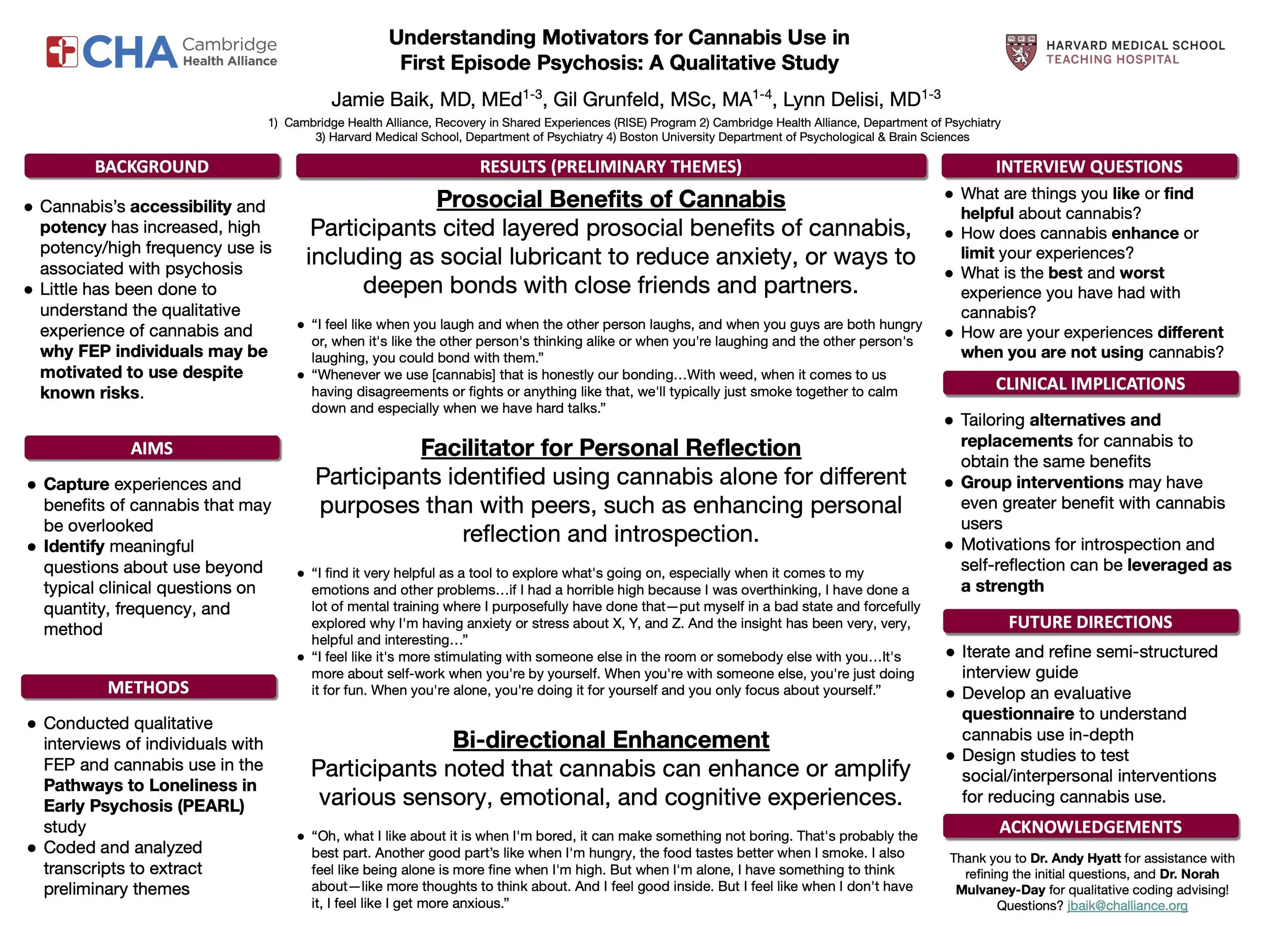Understanding Motivators for Cannabis Use in First Episode Psychosis: A Qualitative Study
Jamie Baik (1), Gil Grunfeld (1), Lynn Delisi (1)
1. Cambridge Health Alliance, Recovery in Shared Experiences (RISE) Program
Background: It is well established that cannabis use is strongly associated with the emergence and worsening of psychotic symptoms. However, little has been done to understand the qualitative experience of cannabis use and why one might be motivated to continue using despite known risks.
Methods: Within the Pathways to Loneliness in Early Psychosis study, we included a section of questions focusing on cannabis use in a qualitative interview of first episode psychosis (FEP) interviewees. A concerted effort was made to ask questions that go beyond the standard clinical interview questions of quantity, frequency, and method of cannabis use. We were especially interested in probing the positive motivators for cannabis use beyond common reasons such as sleep and anxiolysis.
Results: We present qualitative results from interviews with individuals with recent FEP who described their experiences of using cannabis. A number of themes were unearthed, including the prosocial benefits of using cannabis, cannabis as a facilitator for personal reflection, and the relationship between cannabis use and self-esteem.
Conclusions: Through this qualitative study, we can better understand some of the complex reasons that patients may continue to use cannabis despite the risks of worsening mental health and psychosis. Using this information, we can deepen our screening and evaluation of cannabis use. A more nuanced qualitative understanding of use could help tailor interventions to patients to improve adherence to medications and reduction of cannabis use in FEP patients.

